Two Iranian Protesters Face Charges Punishable by Death
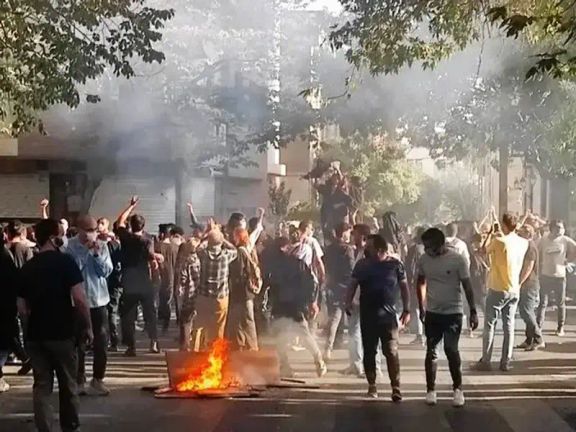
Eight detainees from Iran's 2022 nationwide uprising following Mahsa Amini's death in police custody were tried in a Revolutionary Court on Sunday, with some facing charges punishable by death.

Eight detainees from Iran's 2022 nationwide uprising following Mahsa Amini's death in police custody were tried in a Revolutionary Court on Sunday, with some facing charges punishable by death.
The individuals—Nasim Gholami Simiyari, Hamidreza Sahlabadi, Amin Sokhanvar, Ali Harati Mokhtari, Hossein Mohammad Hosseini, Amir Shah-Velayati, Ehsan Ravazjian, and Hossein Ardestani—were tried by Branch 26 of the Tehran Revolutionary Court.
Among them, Gholami Simiyari and Sahlabadi faced charges of "armed rebellion against the Islamic Republic," which can lead to harsh sentences including the death penalty.
During the court session, Gholami Simiyari denied all charges, stating that her confessions were coerced through pressure and torture by security officers, and prolonged solitary confinement.
Sources close to the families of the protesters revealed that the six other defendants face various charges, including "membership in a rebel group, assembly and collusion to commit crimes against national security, propaganda against the Islamic Republic, disturbing public order, security, and public peace."
At the end of the court session, the judge informed the defendants and their lawyers that the trial had concluded, and a verdict would be issued soon.
Four individuals—Harati Mokhtari, Mohammad Hosseini, Shah-Velayati, and Ardestani—have been released on bail. However, Gholami Simiyari, Sahlabadi, Sokhanvar, and Ravazjian remain detained in Evin Prison for over a year after their arrest.
The Islamic Republic has repeatedly coerced detainees into testifying against themselves by recording and broadcasting forced confessions. Three other individuals—Shahin Zahmatkesh, Siamak Taddayon, and Siamak Golshani—also face charges but remain at large.
At least eight people were hanged over trumped-up charges related to the nationwide protests of 2022, with several more protesters currently on death row.
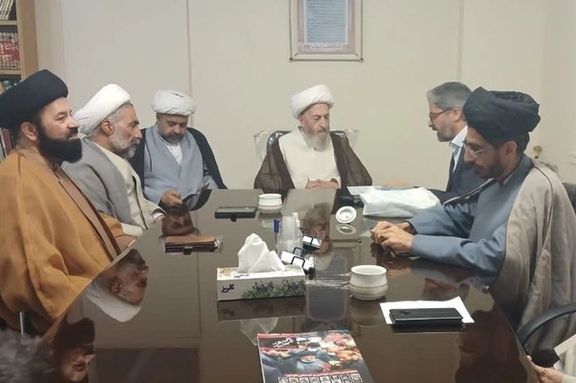
Prominent Iranian Shiite cleric Grand Ayatollah Jafar Sobhani said the forces of Saudi Arabia are seeking to destroy unity in Iran during a meeting on Sunday at Navvab Seminary in Mashhad north-eastern Iran.
"Our current enemy is Wahhabism... all the Saudi forces in the country are using Wahhabism to destroy Islamic unity and, on the other hand, to build a base for themselves in the world and disperse Muslims," Sobhani emphasized as reported by IRGC-affiliated Tasnim News Agency.
Wahhabism, a branch of Sunni Islam, described as “a revivalist movement that grew out of the Hanbali school” by Human Rights Watch is widely practiced in Saudi Arabia.
The Islamic Republic has had tense relations with Saudi Arabia over the years, both as a rival to leadership in the region and as an adversary of the United States and its allies. In 2017, Saudi diplomatic missions were attacked by hardliner Shia religious mobs, tolerated by the Iranian government. The incident led to severance of ties for six years.
Sobhani added that elements from the “Deobandi movement” - a revivalist Sunni movement that spread from India to Pakistan and Afghanistan are “active” in Iran. He labeled these Deobandis as "a second form of Wahhabism" and emphasized the need to “examine and address the roots and issues of Wahhabism within the country.”
Sunni Muslims are a minority in Iran mostly belonging to Kurdish, Baluchi and other ethnic groups. The Sunnis are discriminated against by Iran's Shiite clerical rulers, both by being denied high-level government jobs and also being subjected to religious restrictions, such as being denied mosques in the capital Tehran.
Previously, other Iranian clerics have suggested that Wahhabism is on the rise in Iran, including a high-ranking seminarian in Qom, Ayatollah Seyyed Mohammad-Javad Alavi-Boroujerdi in late 2013 during an interview.
"The number of Wahabi Muslims in Iran is also on the rise. They have increased their activities and have their own Friday Prayer congregations," said Boroujerdi.
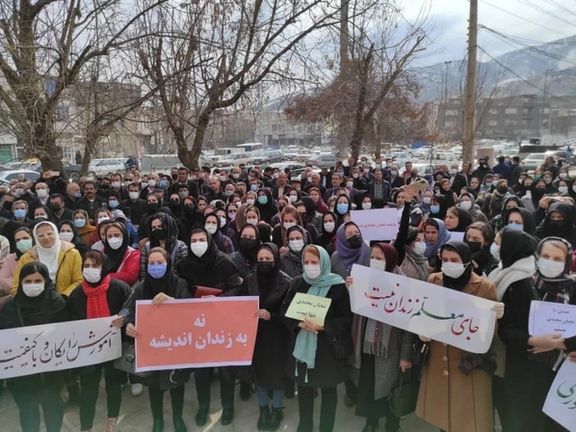
The head of the Iranian Parliament's Research Center has warned of a critical shortage of teachers, with 176,000 needed for the upcoming academic year.
Babak Negahdari added that an additional 72,000 teachers are expected to retire by September 2024, further straining the Ministry of Education's ability to fill positions.
He blames the teacher shortage on several factors, including neglect of universities that train teachers, the weakening of teacher training centers, and flawed teacher employment regulations implemented between 2009 and 2021.
He additionally highlighted challenges like the low pay offered to retired teachers who return to work and the dismissal of educators for activism.
Mohammad Habibi, spokesperson for the Teachers' Trade Union, said earlier in June, "I have reliable information that dozens of newly hired teachers in just one branch of the Gilan Province Education Department have been fired for a single Instagram post,” he said, noting that it has not been made public because authorities are worried about the potential security repercussions.
He added that there are numerous similar cases across the country, and these dismissals are one of the factors contributing to the teacher shortage in education over the past two years.
These issues arise amidst a long history of government pressure and attempts to suppress teachers and union activists. In recent years, numerous teachers were detained and faced harsh prison sentences. The crackdown has intensified since the beginning of the 2022 protests.
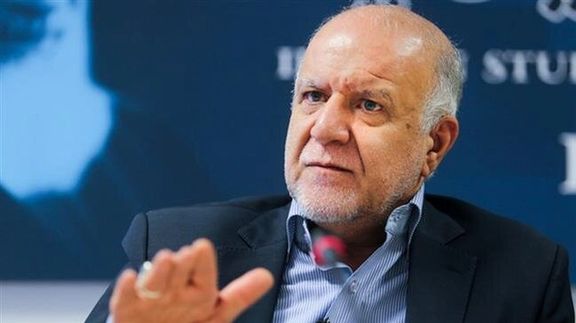
Bijan Zanganeh, Iran's former oil minister, says he has filed a lawsuit against Iranian presidential candidates Saeed Jalili and Alireza Zakani for “slandering and insulting” him on state TV during the fourth presidential debate on June 24.
During the debate, hardliner Zakani suggested that ‘reformist’ candidate Masoud Pezeshkian was involved in the controversial Crescent deal, a contract signed between National Iranian Oil Company (NIOC) and Sharjah-based Crescent Petroleum which led to a legal dispute at the Hague court and cost Iran $607 million for non-compliance with the agreement.
Zanganeh was Iran's oil minister under President Mohammad Khatami (1997-2005), whose government is known as Iran's reformist administration.
"During Khatami's term, the greatest betrayals in the oil sector happened to the country," Zakani said during the debate.
Jalili also accused Zanganeh of "corruption and plundering billions of dollars" concerning the Crescent deal.
Zanganeh denied these claims. In a post on X, he attached a copy of his complaint filed with Tehran's Public and Revolutionary Prosecutor and pointed to the specific charge of "publication of falsehoods" punishable by law as outlined in the Islamic Penal Code. He demanded "criminal prosecution" of Jalili and Zakani.
The attack by the two hardliners was part of their election campaign to smear Iran's 'reformists' and present themselves as fighters against corruption. Despite the reformist-hardliner dichotomy, over 60% of voters stayed away from the polls on Friday, in what is seen as a big blow to the legitimacy of the Islamic Republic.
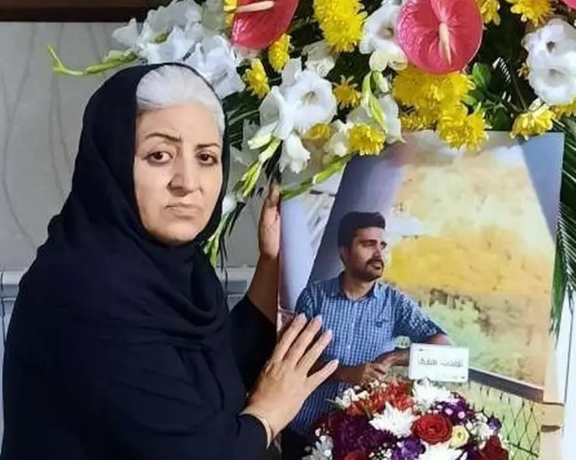
Mona Bakhtiari, whose brother Pouya Bakhtiari was killed during the 2019 protests, says her mother has been physically assaulted in prison.
"Today I came from visiting my mother, and realized that there was an attempt on my mother's life and someone beat her up," Bakhtiari said in a video posted on X on Wednesday.
She also expressed concern for her father's well-being, stating that Manouchehr Bakhtiari's life is in danger due to illness and the prison authorities' refusal to allow for a necessary surgery.
"We are ready to be killed because this life is much worse than death," she said.
Bakhtiari criticized the authorities, asking, "How can you justify playing with the lives of my mother and father?"
This incident is not the first time Nahid Shirpisheh has faced violence in prison.
In 2022, Bakhtiari reported that her mother was "beaten by either unauthorized or state-affiliated prisoners" with officials failing to intervene, just three weeks after entering the general ward of Zanjan prison.
In her video, she mentioned that agents from the Ministry of Intelligence visited her mother in March, promising a 10-day leave "on bail of several billion Tomans."
Instead, Bakhtiari says that the Ministry of Intelligence summoned her mother two months ago, demanding she confess on camera that her son Pouya was a "troublemaker who intended to shoot at officers."
During the 2019 nationwide protests in Iran, known as Bloody November, 27-year-old Pouya was shot in the head in the city of Karaj. Sparked by hike in fuel prices, the protests quickly evolved into demands for regime change and the removal of Supreme Leader Ali Khamenei.
Pouya's family attributed his death to security forces and demanded accountability for his death and the deaths of at least 1,500 at the hands of security forces.
Bakhtiari says the authorities recently revoked her mother's leave from prison because of social media posts by their relatives, Saba and Mehrdad Bakhtiari.
In the posts, Saba and Mehrdad Bakhtiari, Pouya Bakhtiari's uncle and aunt, revealed that their cousin, Behrouz Ghadimi, was the flight technician on the Iranian president's helicopter that crashed last month. The crash killed Ghadimi and all the officials on board, including President Ebrahim Raisi and Foreign Minister Amir Abdollahian.
Following her son's death, Shirpisheh has faced severe pressure from security forces, including numerous summons and arrests.
During the widespread arrests of protesters' families in 2022, Shirpisheh was detained again, and although many others were gradually released, she was sentenced to five years in prison.
Pouya Bakhtiari's father was arrested in 2021 when security forces used excessive force during his apprehension at his residence in Tehran.
A Revolutionary Court subsequently sentenced him to three years and six months in prison, two years and six months in exile, and a two-year travel ban. Subsequently, further sentences were imposed on his existing term.
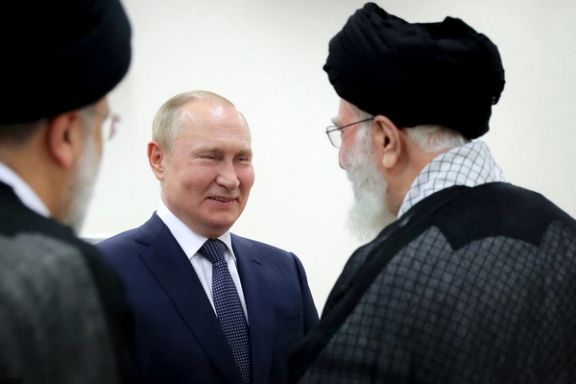
As Iran approaches a runoff in its snap presidential election on July 5 between a hardliner and a more moderate candidate, questions arise about whether either would be willing or able to change Tehran's foreign policy.
A recent report by the Royal Institute of International Affairs, commonly known as Chatham House, a British think tank based in London delves into the complexities surrounding Iran’s presidential election and its potential impact on the country’s foreign relations, particularly with Russia.
The recent deaths of President Ebrahim Raisi and Foreign Minister Hossein Amir-Abdollahian in May following a freak helicopter crash, have left a significant void in Iran’s foreign policy strategy according to Chatham House’s report: The two main supporters of rapprochement with Russia were Raisi and Amir-Abdollahian, the report says.
It also suggests that the future of Iranian-Russian relations, which had been moving towards a more institutionalized partnership, now hinges on the stance of the next Iranian president.
It notes that while acting President Mohammad Mokhber and acting Foreign Minister Ali Bagheri-Kani continue to emphasize the strategic nature of the relationship, incoming leadership may prioritize economic recovery over deepening ties with Moscow: "However, the main candidates in the presidential race are all signaling that their priorities are relieving sanctions and improving the economy – not a special relationship with Moscow."
Supreme Leader’s influence and future directions
Regardless of the outcome of the presidential elections, Iran’s Supreme Leader Ali Khamenei’s influence remains pivotal in shaping the country’s foreign policy. As highlighted by Chatham House, his endorsement of previous initiatives, including the 'turn to the East' strategy – a strategy to strengthen political, economic, and strategic ties with Eastern hemisphere countries, especially with Ruassia and China, aiming to expand alliance networks and reduce Iran’s vulnerability to Western influence – underscores Iran’s approach to navigating international pressures and sanctions.
However, the Chatham House report suggests that Khamenei’s strategic calculus may evolve depending on the election outcome and broader geopolitical shifts. It notes, "Even the Supreme Leader may change course on Russia if the interests of the regime require it."
Iran’s economic crisis
The election takes place against a backdrop of profound economic turmoil in Iran. The country is confronted with a staggering infrastructure deficit amounting to $500 billion, alongside persistent annual inflation rates exceeding 40% for the past five years. The sharp devaluation of Iran’s currency, the rial, has plunged millions of Iranians into poverty, exacerbating socioeconomic challenges. Despite Iran's vast oil reserves, gasoline shortages persist, highlighting ongoing economic complexities.
However, against this backdrop, candidates have not seriously Khamenei's strategic policies of remaining steadfast in expanding Iran's nuclear program or continuing a regional confrontation with Israel and the United States. The "revolutionary" foreign policy has gone unchallenged by the candidates. In fact, Saeed Jalili is the most hardline politician when it comes to a confrontational foreign policy.
“Two problems face whoever wins Iran’s presidential race: to bring the economy out of crisis and to reduce the external pressure exerted on the country through sanctions,” the report emphasized.
Chatham House in its report agrees that Jalili takes a confrontational stance, advocating not only forcing the lifting of sanctions but also for compelling sanctioning countries to repent.
During the fourth presidential debate, Jalili highlighted Russia's conflict with the EU as an opportunity for Iran to boost exports, such as vegetables previously imported by Russia from Europe. This has raised eyebrows in Iran that Jalili is suggesting meager income from vegetable exports, while Tehran's foreign policy has cost the country hundreds of billions of dollars in lost oil revenues and economic development.
The only so-called ‘reformist’ candidate, Masould Pezeshkian has criticized Iran’s ‘turn to the East’ strategy and suggested opening the country to the West, as well as reducing tensions with the US, the Chatham House report said. Despite this, Pezeshkian has consistently maintained that he remains loyal to Khamenei - meaning that should Khamenei decide to continue support for the 'turn to the East' strategy, Pezeshkian would follow suit.
Candidates downplay ties to Russia
The report further notes, "Immediately after Raisi’s death, the Kremlin tried to put the discussion of a long-term bilateral agreement on pause, willing to see the outcome of the presidential race in Iran."
While Russia remains a crucial ally for Iran, particularly in circumventing international sanctions and coordinating on regional security issues, the next Iranian administration’s orientation towards the West could reshape these dynamics: "Any lifting of sanctions and restoration of ties with the West will require Tehran to revise its relations with Russia, although not necessarily immediately."
Contrarily, the report indicated that Jalili offers scant optimism for genuine friendship with Russia. Although he does not prioritize Russia in Iran’s foreign policy discourse, rather mentions Moscow within the broader ‘turn to the East’ context alongside China and India.
Moreover, the report underscores the potential for gradual shifts in Iranian foreign policy depending on internal and external pressures: "The bottom line is that while there is no chance for the immediate and deep revision of Russian–Iranian ties, the erosion of the current format is quite possible in the medium term, should the new president succeed in launching the sanctions-lifting process."